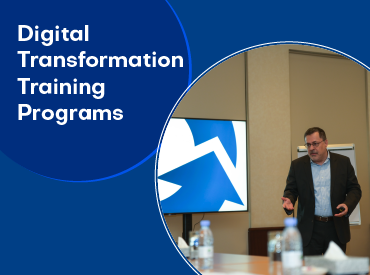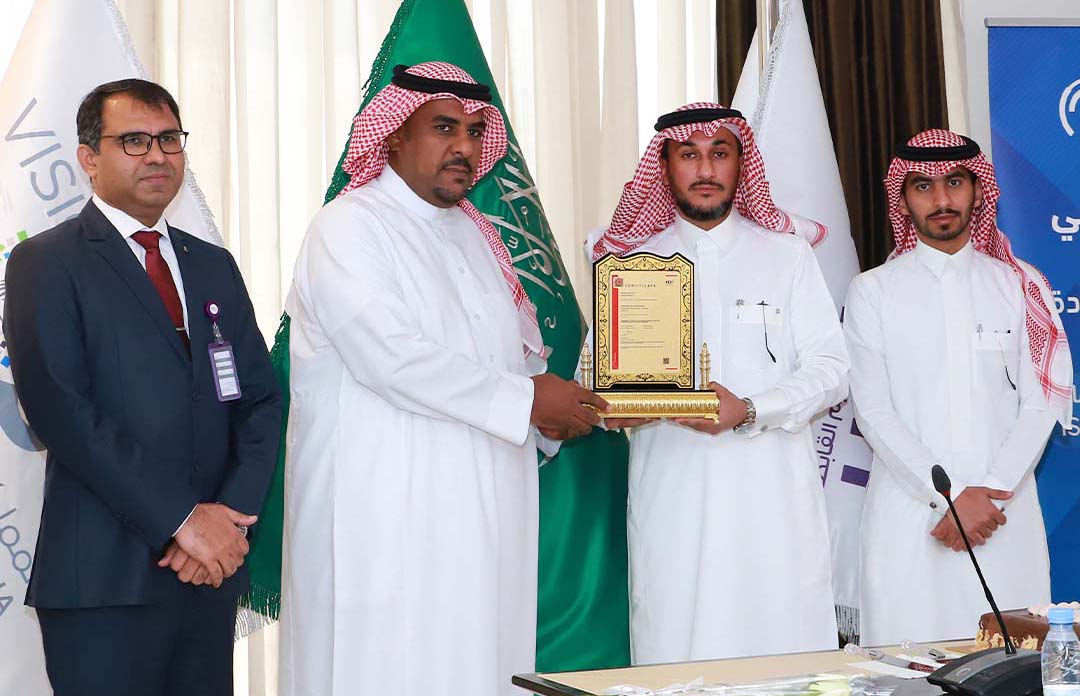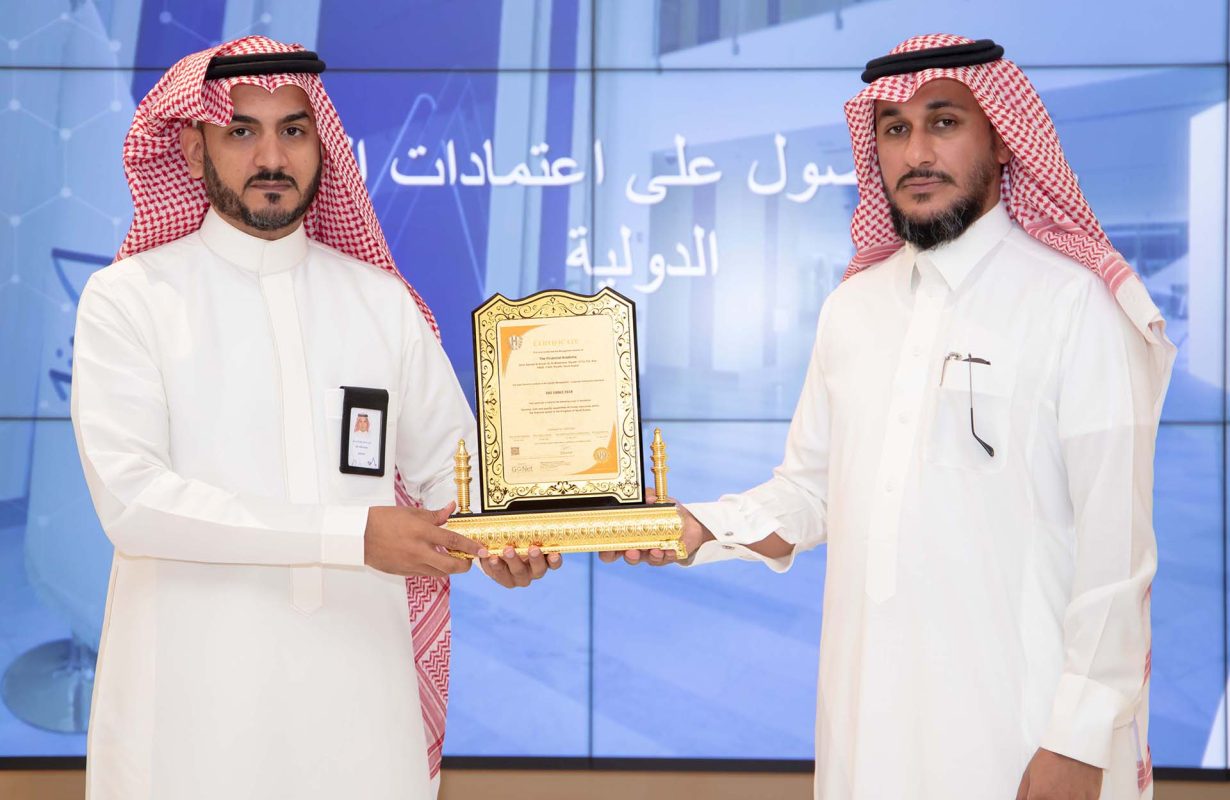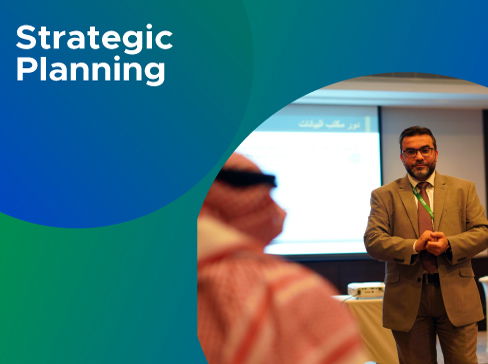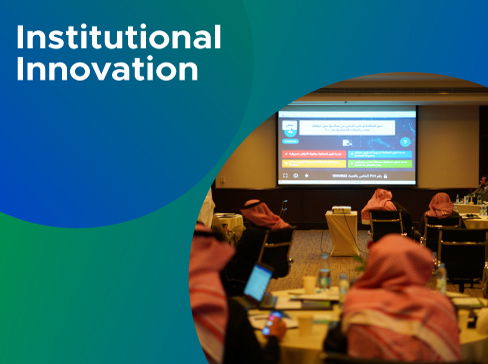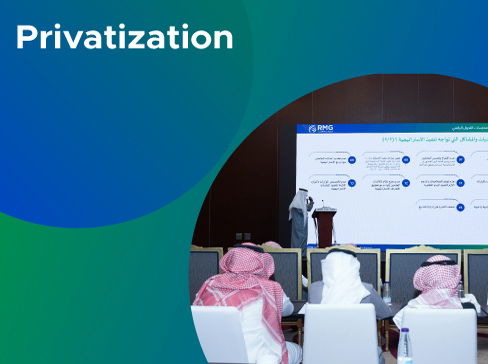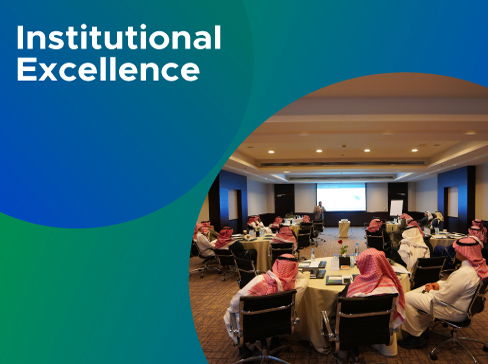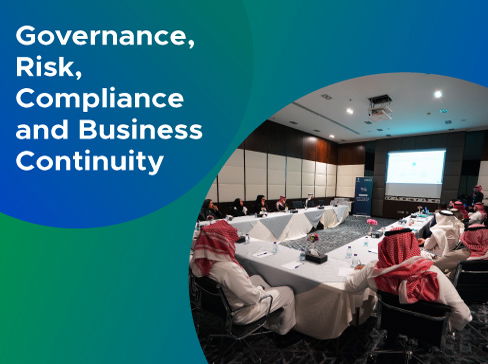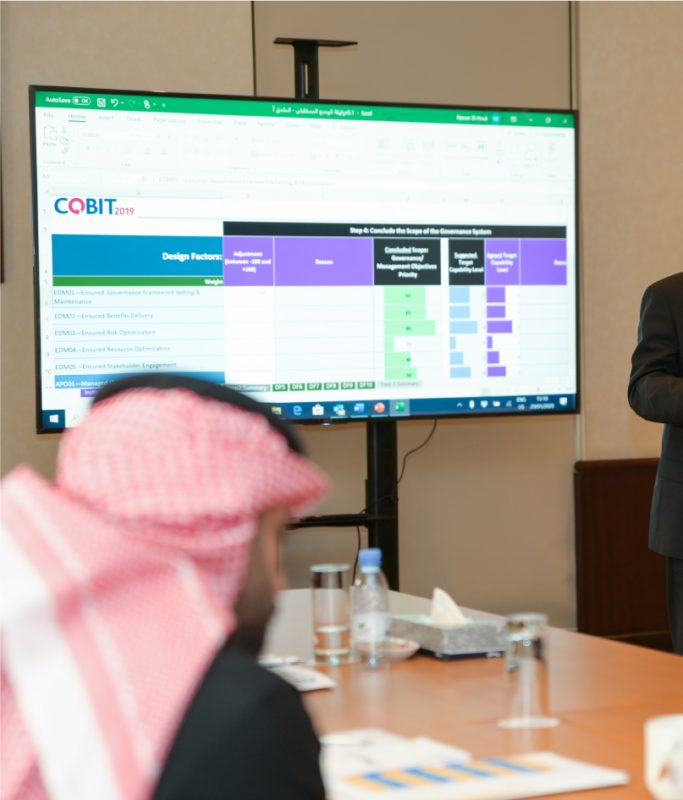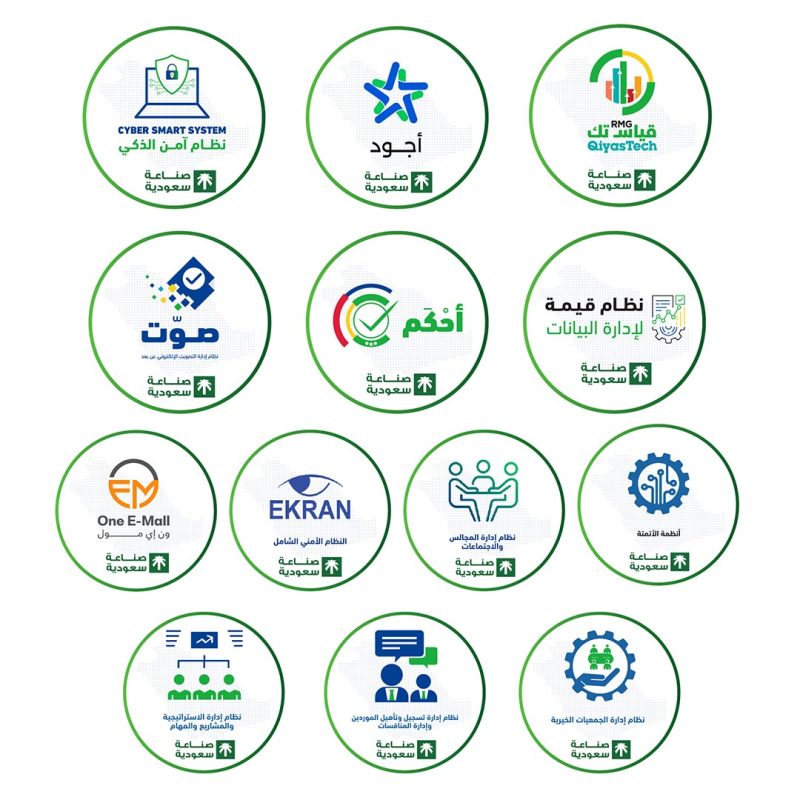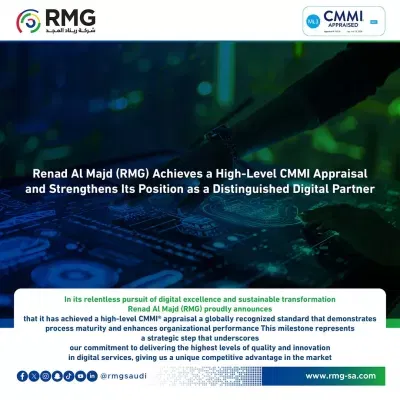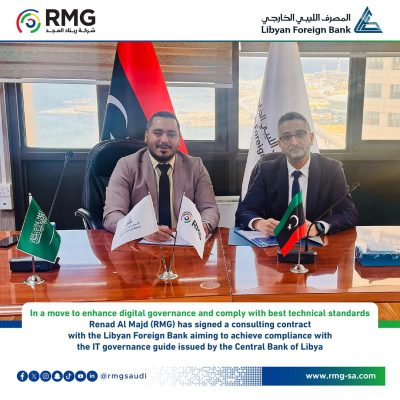Blog Body
Discover the significance of quality management in organizations and how total quality management strategies affect organizational performance. In today’s fiercely competitive global and local markets, total quality management has become a strategic necessity for any organization aiming for excellence and sustainable growth. Quality is a central factor in enhancing performance levels and achieving customer satisfaction, whether in the services provided or in the internal processes of organizations.

The Concept of Quality Management and Its Importance
Total quality management is a managerial approach that aims to improve all aspects of an organization’s performance through an integrated focus on customer satisfaction, process development, and the reduction of waste and costs. This system is considered a fundamental cornerstone for achieving quality in both administrative and operational work within organizations. It helps build a work culture that is centered on innovation and continuous improvement. One of the most important principles of the total quality management system’s philosophy—and indeed one of its key tenets—is the active participation of every member of the organization in the process of improving quality and the continuous commitment to delivering excellence.
The Impact of Implementing Total Quality Management on Organizational Performance
Recent studies indicate that the impact of implementing total quality management on organizational performance goes far beyond merely improving products and services; it also enhances organizational spirit and fosters innovation within the work environment. When this concept is put into practice, a series of tools and procedures are activated that raise efficiency and effectiveness within organizations. Among these tools are those used for implementing total quality management—such as process analysis, internal audits, and continuous evaluations—which help in early problem detection and correction before issues escalate.
Global Developments in Total Quality Management
In line with modern global management trends, total quality management is experiencing significant transformations that keep pace with technological advancement and economic globalization. Major organizations around the world have adopted modern methodologies for implementing total quality management that focus on the integration of intelligent systems and digital analytics. This contributes to the delivery of advanced services that meet customer needs and remain competitive in international markets. Adopting these trends also enhances an organization’s credibility and creates a work environment that encourages innovation and creativity.
Educational and Training Programs in Quality Management
Human competencies are one of the most important factors in the success of any quality management system. Therefore, investing in educational and training programs is a critical step toward building a promising future in this field. In this context, there is a growing demand for programs such as a Master’s in Quality Management, a Diploma in Quality Management, and a Quality Management Course. These programs provide the theoretical and practical knowledge necessary to efficiently implement quality management systems. Additionally, a comprehensive total quality management course offers participants the practical tools and expertise they need to develop their skills and achieve organizational objectives.
Applying Quality Management Across Various Sectors
Quality management applications vary according to the nature of each organization and the sector it belongs to. Here are some prominent examples:
Total Quality Management in Higher Education
Total quality management in higher education plays a pivotal role in raising both academic and administrative performance in educational institutions. Higher education requires an integrated quality management system that ensures the delivery of outstanding educational programs in accordance with the latest global standards, with a focus on curriculum development and creating an inspiring learning environment. Implementing quality management in higher education is a strategic step toward preparing graduates capable of competing in the global job market.
In Hospitals
Hospitals face significant challenges in delivering exceptional healthcare services that keep pace with medical and digital advancements. This is where the importance of quality management in hospitals comes into play, as it helps improve the level of healthcare and reduce medical errors. By applying a quality management system, hospitals can streamline internal processes, ensure patient safety, and enhance the efficiency of medical resource utilization, thereby increasing patient satisfaction and achieving better treatment outcomes.
Project Quality Management and Quality in Administrative Work
In the business world, project quality management is a fundamental factor for the success of any commercial or construction project. Achieving project goals requires adherence to high-quality standards and effective risk management. Moreover, quality in administrative work contributes to improving the work environment and activating the role of employees in executing organizational strategies, which in turn positively impacts the overall performance of the organization.

Tools and Applications for Total Quality Management
The success of implementing a quality management system depends on a set of tools and techniques that help organizations analyze performance and identify strengths and weaknesses. Among these tools are:
- TQM Application Tools:
These include instruments such as root cause analysis, flowcharts, and key performance indicators (KPIs) that help monitor performance and periodically analyze results. - Quality Management Tasks:
These involve setting quality standards, establishing integrated policies and procedures, monitoring performance, and providing periodic reports to ensure adherence to defined standards.
Implementing these tools is a vital step in achieving the impact of total quality management on organizational performance, as they contribute to improving efficiency and reducing operational costs, leading to positive long-term results.
Global Trends in Quality Management
Modern organizations are increasingly moving toward adopting total quality management in line with the latest global management trends that blend innovation and technology. Some of these trends include:
- Focusing on digital transformation and adopting electronic systems for quality management.
- Utilizing Big Data to analyze performance and improve processes.
- Applying the principles of sustainability and social responsibility within quality policies.
One of the most important principles of the total quality management system’s philosophy is the emphasis on transparency and the effective participation of all members of the organization in improving quality, which reinforces team spirit and collaboration to achieve shared objectives.
Renad Al Majd’s Services and Their Role in Enhancing Quality Management
Renad Al Majd plays a leading role in providing specialized consulting and training services in quality management by offering integrated solutions that meet the diverse needs of various organizations in the Kingdom. Some of the key services provided by the company include:
Quality Management Consulting
Renad Al Majd offers comprehensive consulting services that include evaluating the current state of an organization, identifying its strengths and weaknesses, and proposing innovative solutions to improve performance according to the best global standards. The company also provides practical recommendations for implementing a quality management system that aligns with the nature and operational conditions of the organization.
Training Programs and Specialized Courses
The company offers a variety of training programs such as a Quality Management Course and a comprehensive total quality management course, which enable professionals to acquire the necessary skills and enhance their competencies in the field of quality. These programs are complemented by advanced offerings like a Master’s in Quality Management and a Diploma in Quality Management, all of which help elevate both administrative and operational performance.
Technological Consulting
Renad Al Majd assists organizations in adopting the latest systems and technological tools that contribute to improving their quality management systems and effectively applying total quality management tools.
Practical Implementation of Quality Systems
By supporting implementation and integration processes, the company helps organizations fully implement a quality management system, with a focus on achieving the positive impact of total quality management on organizational performance and improving practical outcomes.
Implementation Support and Follow-Up
Renad Al Majd provides technical support and continuous follow-up throughout the quality implementation process. These services include:
- Supporting implementation processes and integration with existing systems.
- Offering consulting services to improve both administrative and production performance.
- Providing periodic reports that enable organizations to measure the impact of quality management on their overall performance.
Through these integrated services, Renad Al Majd helps organizations achieve a qualitative transformation in management methods, leading to improved efficiency, operational effectiveness, and enhanced competitiveness in the market.

Quality Management: A Strategy for Excellence and Organizational Development
Quality management plays a pivotal role in achieving success and organizational development. It is one of the vital tools that helps organizations enhance their operational performance and improve the level of services provided. Implementing total quality management is not just an administrative procedure—it is a comprehensive strategy aimed at achieving excellence through:
- Developing human competencies via specialized educational programs (Master’s in Quality Management, Diploma in Quality Management, Quality Management Course).
- Enhancing operational and administrative processes.
- Adopting the latest tools and techniques for performance analysis.
- Keeping pace with modern global management trends.
Renad Al Majd: Maximizing the Benefits of Quality Systems
Organizations need a strategic partner with the expertise and competence in this field, and Renad Al Majd (RMG) provides the ideal solutions to help organizations achieve the maximum benefits from quality systems. Through its integrated services in consulting, training, and technical support, organizations can enhance the quality of administrative work and effectively implement the positive impact of total quality management on organizational performance in a sustainable manner.
For more information, please feel free to reach out through the contact form provided below.






